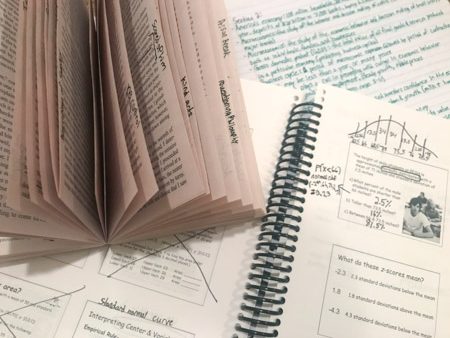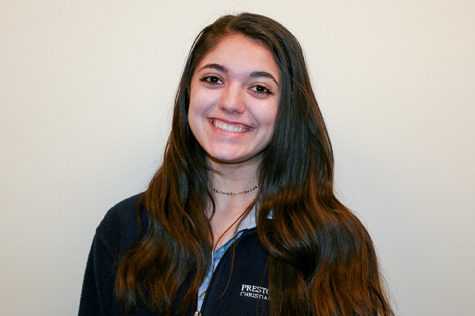
Papers are strewn across the floor. Lights burn steadily into the early hours of the morning. Computers hum with videos playing double time. Half-completed homework covers the desk. The student slumbers silently amidst it all.
Most students don’t truly realize just how difficult it is to find balance during Senior year. Between school and Senior events, time seems to move in ways that never seemed possible. With everything going on, it is important to know what class load to take and just how to manage it.
Two critical decisions for many Senior students is how many and which Advanced Placement or “AP” courses to take. While tempting, because they can offer a GPA boost and college credit, these courses are designed to push students academically. Because they are graded on a 5.0 scale rather than the traditional 4.0 scale, it’s important to choose AP courses carefully and be prepared for the amount of work and brain power that must go into them. Choosing incorrectly can make the year very long and very difficult.
The school offers many AP options through on-site classes and online through PCAplus. These are available to students beginning Junior year. Students are encouraged to pick these classes for subjects that interest them the most, so they can dive in deep. However, these classes require a commitment to excellence academically and a good deal of time beyond that of normal classes.
Junior year, many students are excited to join the AP culture. Some of the most popular classes include AP Physics, AP US History, and AP English. They soon realize these classes are also considered some of the hardest, and it takes perseverance in many cases to finish successfully. Add to that all the events of Senior year, and the balancing act becomes real.
Students who embark on Senior AP courses must take into consideration three things – if they are truly interested in the subject, how much effort they are willing to put in to succeeding in that class and if the course load is doable with the Senior schedule.
Interest in the Subject
Many students try to take AP classes to boost their GPA or just to get their college credit. While these can be good reasons to take a class, they should not be the only things taken into consideration. Students should try to enroll in classes that pique their interest and make them excited to learn.
Senior Alex Caesar said, “I took AP Calculus because math fascinates me. I love to see the way that numbers work. It just makes sense.”
Effort and Success
If a student does not have any interest in the subject, then learning and all of the hard work that goes into a class becomes a chore. Classes like AP US History and AP Government require lots of notes and outside reading. AP Physics and AP Statistics require outside work and struggling through theorems. If students take a class merely for the credit, these tasks become laborious and make it difficult to stay engaged.
Senior Gavin McManus switched from one AP class to another. In retrospect, he would not have made that change. He said, “AP Statistics didn’t turn out as interesting as AP Physics C. So, after I switched, I wish I would have stayed in Physics and challenged myself more. The work would be more exciting that way.”
Matching Course Work with Senior Schedule
Senior year, the course load can be enormous, and the calendar is tight. All year, it’s the last everything which makes participating in extracurricular activities and attending events more important than ever.
In the fall, Homecoming, football games and the holiday season can interfere with the AP classes. Students are encouraged to take advantage of their last year in high school, but it is hard to do when many classes require weekend studying and late-night projects. Also, on top of that, college applications are due throughout the fall. Weekends are spent composing essays that describe the unique individual or taking trips to the colleges of interest.
In the spring, Minimester and Senior events dominate after-school culture. Weekends from Spring Break on are filled with graduation parties causing study time for AP exams to fly out the window. AP exams can even fall after the last day of school for many Seniors, even up to the day before graduation. Students must take all of these things in to account when they sign up for AP classes Senior year.
Senior Timothy Crisp participated in many extracurricular activities alongside of the regularly scheduled Senior events. He said, “Being in so many activities such as the Fall Play and the Spring Musical meant that my time was limited. That’s why Senior year, AP classes are all about exploring what you are passionate about. It’s not worth just doing it for the grade because it will just cramp your schedule.”
Each of these things must be taken into consideration when choosing AP classes. Otherwise, the student might be overwhelmed, stretched too thin and frustrated by the time it’s done. AP classes are not just about the grades. They are about growing as a person, challenging the mind academically and discovering passions. Balance them with the celebration of Senior year for a satisfying and accomplished graduation day.


